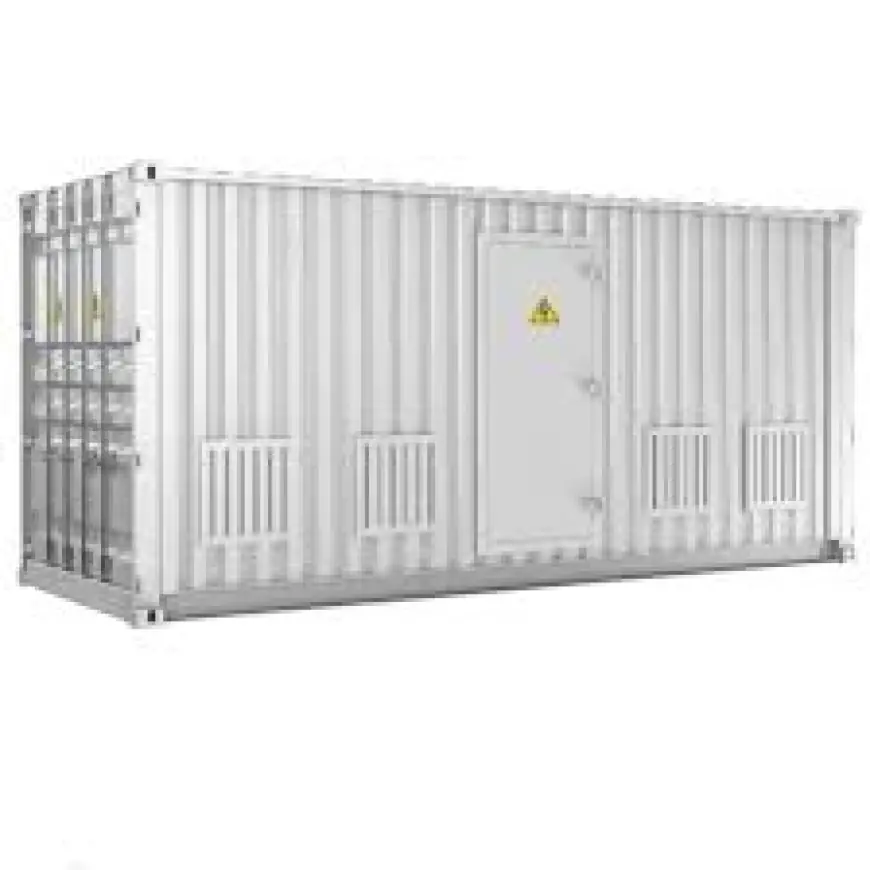Battery Energy Storage System (BESS) Market overview examining challenges in raw material supply and logistics globally
Battery energy storage systems face challenges in raw material supply and logistics, impacting production, cost, and global deployment across industrial, commercial, and residential energy storage applications worldwide.

Battery energy storage system (BESS) market overview highlights challenges in raw material supply and logistics that affect global deployment. Industrial, commercial, and residential sectors rely on lithium, cobalt, nickel, and other critical materials to manufacture batteries efficiently. Supply chain disruptions, geopolitical factors, and transportation constraints can delay production and increase costs. Efficient logistics management and alternative sourcing strategies are critical to sustaining market growth. Addressing raw material and logistical challenges ensures timely delivery, reliable performance, and scalability of BESS solutions, which are essential for global energy storage adoption and renewable integration.
Raw Material Challenges
BESS production depends on critical raw materials such as lithium, cobalt, nickel, and graphite. Limited availability, mining constraints, and geopolitical issues affect supply stability. Industrial demand for high-capacity storage increases pressure on sourcing these materials. Commercial and residential deployment faces similar risks, as material shortages can increase prices and delay projects. Manufacturers are exploring recycling, material substitution, and alternative chemistries to mitigate supply risks. Ensuring a consistent supply of raw materials is essential to meet global BESS demand and maintain sustainable production across diverse sectors.
Impact on Industrial Sector
Industrial adoption of BESS is affected by raw material supply challenges. Manufacturing plants, processing facilities, and large-scale energy operations require reliable battery supply for operational efficiency. Delays or cost increases can impact production schedules, project timelines, and return on investment. Industrial users increasingly rely on suppliers with robust procurement strategies and logistical networks to maintain uninterrupted deployment. Effective supply chain management ensures that industrial energy storage systems meet performance standards, support operational efficiency, and integrate renewable energy solutions despite material and logistical challenges.
Commercial Deployment Considerations
Commercial sectors face similar supply and logistics issues. Office complexes, retail centers, hospitals, and data centers require timely delivery of BESS solutions for energy optimization and backup power. Raw material scarcity and transportation delays can increase installation costs and limit expansion plans. Advanced logistics planning, inventory management, and supplier partnerships help mitigate risks. Commercial adoption depends on the ability to secure batteries with consistent quality, reliable delivery, and optimized supply chains. Addressing these challenges ensures commercial energy storage solutions maintain operational reliability, cost-effectiveness, and sustainability.
Residential Market Implications
Residential users may experience limited access to BESS due to raw material supply constraints. Homeowners integrating storage systems with solar or microgrid setups rely on manufacturers to meet demand. Delays or higher costs can impact affordability and adoption rates. Modular and scalable solutions help address supply shortages by allowing phased installation. Homeowners benefit from storage systems that are delivered efficiently and operate reliably. Resolving raw material and logistical challenges is essential to ensure residential energy storage solutions remain accessible, cost-effective, and capable of supporting clean energy integration globally.
Renewable Energy Integration
BESS supports renewable energy integration by storing excess solar and wind power. Supply chain and logistics challenges can affect the availability of batteries for grid-scale and distributed energy systems. Industrial, commercial, and residential users may face delays in implementing renewable integration projects if raw materials or logistics are constrained. Efficient sourcing, production, and distribution are critical to maintaining renewable energy adoption and maximizing environmental benefits. By addressing supply chain bottlenecks, BESS deployment can ensure efficient utilization of renewable resources and support sustainable energy practices worldwide.
Technological Innovation
Technological advancements are helping mitigate raw material and logistics challenges. Emerging battery chemistries, such as sodium-ion, solid-state, and flow batteries, reduce reliance on scarce materials and improve scalability. Intelligent supply chain management, predictive analytics, and manufacturing automation enhance production efficiency and reduce delivery delays. Modular and flexible designs allow incremental deployment in industrial, commercial, and residential sectors. Continuous innovation ensures that BESS solutions remain resilient against raw material constraints and logistical hurdles, supporting reliable and sustainable energy storage adoption worldwide.
Economic and Operational Impact
Raw material and logistics challenges influence both economic and operational aspects of BESS deployment. Higher material costs increase project expenses, while delays impact operational efficiency and energy management. Industrial, commercial, and residential users require reliable supply to optimize energy usage, reduce peak demand costs, and ensure backup power. Effective supply chain management and alternative sourcing strategies minimize financial risks, maintain operational performance, and support sustainability goals. Addressing these challenges strengthens confidence in BESS investments and encourages widespread adoption globally.
Policy Support and Industry Collaboration
Government policies and industry collaboration help mitigate raw material and logistics challenges. Strategic reserves, trade agreements, and import/export regulations stabilize supply chains. Incentives and grants support domestic production, recycling initiatives, and alternative material development. Partnerships between manufacturers, suppliers, and logistics providers improve efficiency and reduce bottlenecks. Regulatory frameworks ensure safety, quality, and environmental compliance. Policy support and collaboration enable resilient, sustainable BESS deployment, ensuring industrial, commercial, and residential sectors have reliable access to energy storage solutions while supporting global market growth.
Future Outlook
The Battery Energy Storage System (BESS) market will continue growing despite raw material and logistics challenges. Industrial, commercial, and residential sectors will adopt strategies to ensure reliable supply, optimize costs, and maintain operational efficiency. Technological innovation, recycling, and alternative materials will reduce dependence on scarce resources. Policy support and industry collaboration will strengthen supply chains and logistics networks. The global BESS market is poised for long-term growth, providing reliable, cost-effective, and sustainable energy storage solutions while overcoming challenges in material supply and distribution worldwide.
What's Your Reaction?
 Like
0
Like
0
 Dislike
0
Dislike
0
 Love
0
Love
0
 Funny
0
Funny
0
 Angry
0
Angry
0
 Sad
0
Sad
0
 Wow
0
Wow
0
















































